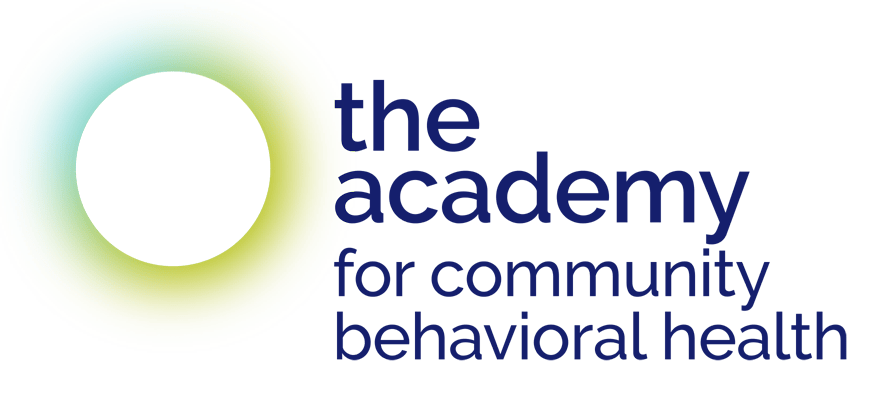All Scheduled Dates
None scheduled at this time
Course Type
Skills-Based Certificate Program
Course Length
10.5 hours over 7 weeks
QUESTIONS?
Email [email protected]
ATTENDANCE POLICY
This is an interactive, cohort-based course. We expect participants in the Academy's cohort-based courses to attend all course sessions. Each course session will build on the prior weeks. Attending and contributing consistently will enrich your experience and that of your peers.
Participants who attend all sessions will receive a certificate of completion. Those who miss no more than one session may receive a certificate of completion, at the Academy's discretion.
Principles of Grief Support
DESCRIPTION
This advanced, 7-session course helps learners develop skills to support the emotional needs of people who are grieving. Drawing on current research and clinical practices, learners will deepen their understanding of grief and its emotional, physiological, and social impacts. This is an experiential course where learners gain concrete skills to help people process the pain of loss in 1:1 conversations and bereavement support groups. You will strengthen skills to cultivate presence with clients, validate others’ experiences, and support meaning-making and rituals, among others.
Capacity in this course is limited to promote interaction among learners and instructors.
Pre-requisite: completion of the Academy’s foundational course, “Understanding Grief and Loss: Supporting Bereaved Community Members.” Applicants with equivalent experience on the foundations of grief and loss may be considered.
WHAT TO EXPECT
This highly interactive course will be a mix of teaching, large and small group discussion, reflection, and skills practice. The experiential (hands-on) components of the course will involve role-plays, other skills practice, and engaging in a process of self-reflection and personal exploration.
During this course, we will be practicing and applying the principles of grief support with each other in small groups. While self-disclosure about personal losses is not required, it will likely be a part of the experience for many participants.
Each week will include a combination of large and small group discussions, presentations by the instructors, personal reflections, guided skills practice, and time for questions. Participants will also be asked to complete brief assignments between course sessions, such as readings, written exercises, or film clips. Due to the highly interactive nature of this course, participants can expect to spend significant time on-camera.
We aim to develop a cohesive and supportive learning environment within this cohort, which requires a commitment to attending weekly.
To successfully participate in this course, you will also need:
- Access to a private, quiet space for course sessions
- A computer with a camera and Zoom capability
COURSE OUTLINE
Session I: What is Grief?
- Introductions to the course and to each other
- Current research about how grief impacts us and factors that mediate it
Session II: Different Needs of the Bereaved Over Time/Assessing What Our Clients Need
- How the experience of grief and the emotional needs of grievers can change over time
- Skills to support people in processing the pain of loss
Session III: Special Cases of Loss/The Power of Presence
- Understanding bereavement overload and traumatic bereavement
- Learning the “power of presence” and practicing skills to cultivate it
- Grief in children and the grief of parents losing children
Session IV: Spirituality, Culture, Beliefs, and Ritual
- The role of ritual in grief
- Cultural humility and grief
- Complicated spiritual grief
Session V: Death Competence and Meaning-Making
- Death competence and ways to increase our comfort helping others
- Meaning-making as a way to help people process and heal from loss
Session VI: Facilitating a Grief Support Group
- How to structure a grief support group, identify community members who will be a good fit, and facilitate safety in groups
- Experiencing a grief support group
Session VII: How Our Grief Shows Up at Work
- The personal impacts of working with bereaved people
- Practices in self-compassion and compassion as antidotes to burnout and secondary traumatization
COURSE OBJECTIVES
Participants will learn:
- How to determine the appropriate level of support for bereaved individuals
- Strategies to respond to the emotional needs of bereaved people over time
- The roles of meaning-making and ritual in grief
- Ways to support bereaved children, individuals with traumatic bereavement, and bereavement overload
- How to facilitate a grief support group
- How our personal experiences, history, values, and beliefs can impact our work with the bereaved
- How to cultivate self-compassion and compassion for others as we help bereaved individuals
ELIGIBILITY
This course is for staff of NYC non-profit community-based organizations or government agencies that deliver social services and meet the following criteria:
- Prerequisite: completion of the Academy’s brief learning series course, “Understanding Grief and Loss: Supporting Bereaved Community Members.” Applicants with equivalent coursework on the foundations of grief and loss may be considered.
- You have opportunities to provide direct and ongoing support to bereaved clients and/or employees in your role. Direct care staff and managers are eligible to apply.
- You commit to attend and actively participate in at least 6/7 course sessions.
- You have received approval from your supervisor to participate in all course sessions and apply the skills from this course in your work.
HOW TO APPLY
No cohorts are currently scheduled. Future cohort dates will be announced through our mailing list.
Please reach out to [email protected] with any questions.
SPECIAL NOTE
Due to the universal nature of grief, we expect that many, if not all course participants, will have experienced loss. Those considering this course should know that our focus will be on learning to support community members who are grieving. While we welcome reflections on how learners' personal experience of grief impacts their view of grieving and may contribute to the challenges of supporting others, we will not be able to provide personal grief support to learners in this course.
This course may not be a good fit for individuals who have suffered recent or traumatic losses, and is not a good fit for those experiencing acute distress or seeking personal therapeutic support. If you have any questions about whether this course would be appropriate for you, please contact [email protected].
INSTRUCTORS


